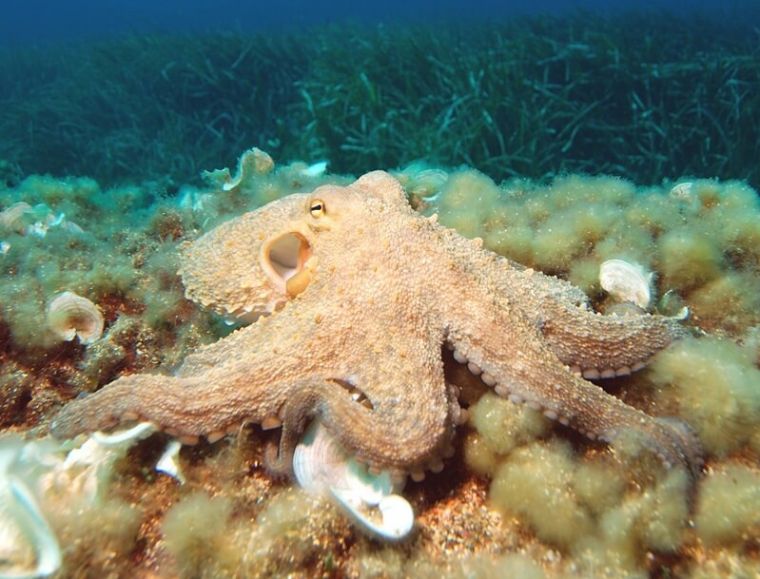Octopus amazes scientists for being a very unusual, complex and intelligent creature

Man's idea of alien creatures has always sprung from outer space. Books, movies and television shows have been depicting aliens as creatures not of this world.
However, an international team of researchers recently labelled a creature common to human beings and definitely from Earth as being an "alien." This is the octopus.
Scientists from the US, Germany, and Japan made this description after completing a groundbreaking, in-depth analysis of the genetic makeup of the eight-armed creature, particularly the California two-spot octopus.
The research findings, recently published in the scientific journal Nature, bolstered observations of the octopus being a very unusual creature.
For instance, the researchers documented a total of 33,638 protein-coding genes in the octopus genome—which is 10,000 more than the genes found on the human genome.
"The octopus appears so utterly different from all other animals, even ones it's related to, that the British zoologist Martin Wells famously called it an alien. In that sense, you could say our paper describes the first sequenced genome from an alien," neurobiologist Clifton Ragsdale, the study's co-leader, explained.
The team of scientists also discovered hundreds of "cephalopod-specific" genes that can only be found in the octopus family. For instance, a particular gene gives the octopus a "remarkable ability to taste with its suckers."
Aside from this, the octopus was also found to be more complex and intelligent compared to other mollusks. In particular, the nervous system of the octopus was described as "vastly modified in size and organisation relative to other molluscs."
"Soft-bodied cephalopods such as the octopus show remarkable morphological departures from the basic molluscan body plan, including dexterous arms lined with hundreds of suckers that function as specialized tactile and chemosensory organs, and an elaborate chromatophore system under direct neural control that enables rapid changes in appearance," the research stated.
The vast dissimilarity between the octopus and other animals has prompted some scientists to describe the creature as "the pinnacle of an evolutionary track alternate from man."
In an article published on Friday in the non-profit Discovery Institute, scientists said evolutionists are struggling to make sense of the octopus.
"How could so many unique genes arise by blind neo-Darwinian processes?" the article asks. "It's unsatisfying to hear scientists assume they 'developed' somehow."
The Discovery Institute said highly complex creatures like the octopus do not support evolution and point instead to something else: design.











